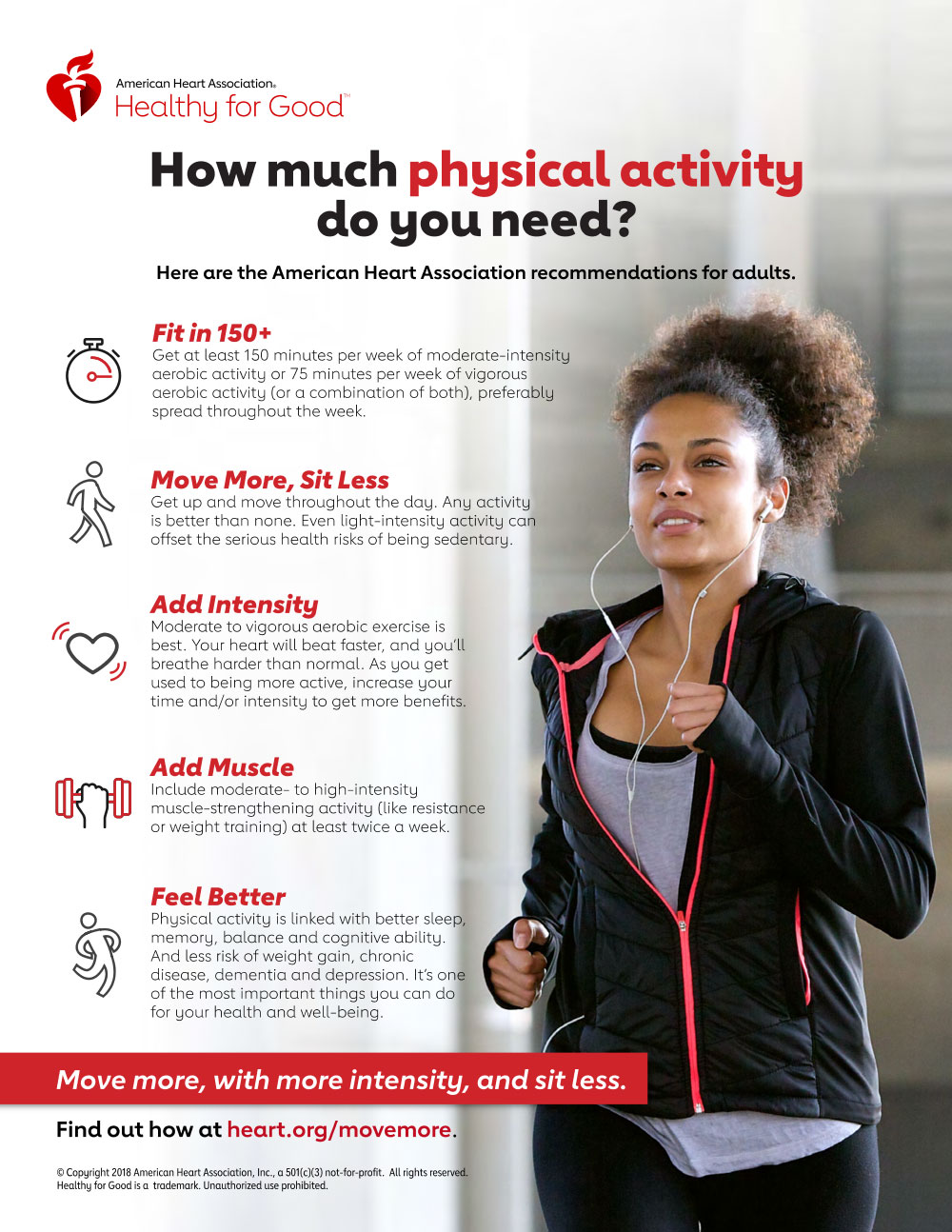Sadly, there’s no magic pill, potion, or ritual that can protect you from having a heart attack. But there are things you can do to lower your risk of heart attack. Taking control of your health by engaging in preventative healthcare is the best way to optimize your physical condition and significantly reduce the risk of having a heart attack. Even if you’ve already had a heart attack, it’s not too late to make the necessary changes to stave off a second heart attack and potentially save your life. Remember, 48% of premature deaths in America are preventable – and heart disease makes up a large portion of that percentage. Take a look at some of these disturbing statistics about heart attacks and heart disease – they’ll fuel your desire to make positive health changes:
- A quarter of all deaths in the US are caused by heart disease every year – that’s 610,00 people
- At least 15% of Americans who have a heart attack die from it
- Heart disease is the foremost cause of death for adults in the US
- 735,000 people have a heart attack every year
- 525,000 of those are first-time heart attacks
- 210,000 are repeat heart attacks
- 47% of people in America have at least one of the three major risk factors for heart disease
- High blood pressure
- High cholesterol
- Smoking addiction
- If you share any of these conditions or habits, you’re at a higher risk of heart attack:
- Diabetes
- Obesity
- Bad dietary choice
- Overuse of alcohol
- Lack of physical activity
Don’t be another statistic! Don’t wait until you experience a heart attack or develop symptoms of heart disease before you seek medical attention or try to change your life – that’s reactive sick care. Instead, take action today – proactive healthcare is the best way to help prevent a heart attack.
1. Get Active!
Just 150 minutes of exercise per week greatly reduces your risk of a whole host of chronic conditions and health complications. If you sit down for work, make a point of getting up every hour, just for a few minutes at a time, to stretch, move around, and get your blood flowing again. Commit to doing just 30 minutes of exercise every day to experience real physical and mental benefits. If you’re pretty sedentary right now, start slow and gradually build length and intensity of your exercise sessions. You can walk, cycle, do group exercise, do cardio, HIIT, mix in weight and strength training, jog, swim, or something else – just get out there and do it! Regular exercise lowers blood pressure, lowers cholesterol, and makes it easier to maintain a healthy weight.

2. Make Healthy Food Choices
Making healthy diet choices will help you to maintain a healthy weight and lower your overall risk of heart disease and cardiac arrest. How much and what type of food you eat impacts many of your controllable risk factors like cholesterol, blood pressure, and weight. Go for natural foods that aren’t highly processed and that are naturally high in nutrients, and make sure your diet is balanced, with a mix of healthy fats, proteins, and carbs. Follow the basic principles of good nutrition and watch your portion size. Even if you tend to get takeout because you don’t have much time to cook, find quick and easy recipes you can whip up at home in just 15 minutes, or use a slow cooker that you can set before you leave for work, and you’ll have a meal ready to serve when you get home. There are always ways to improve your diet, even if you’re short of time.
3. Quit Smoking
It’s not exactly a revelation that smoking is bad for your health. Yes, quitting smoking is hard, but so is having a heart attack. Plus, there are patches, gums, tablets, support groups and other stop smoking aids readily available that will help you quit. Did you know that if you smoke, you’re more than twice as likely to experience a heart attack as a non-smoker?
Callout:
Smokers are four times more at risk of dying of heart disease than non-smokers and three times more likely to die from sudden cardiac arrest.
4. Manage Your Stress Levels
A study by researchers from Harvard University, published in The Lancet, shows definitively that stress is a major risk factor for heart disease and cardiac arrest. In fact, the researchers report that stress is as influential as smoking and high blood pressure. Therefore, it’s essential that we all find ways to manage our stress properly. Getting enough sleep, taking time out every day to decompress, getting outside, being more active, and finding your own coping mechanisms all help you minimize stress and its impact on your physical and mental health.
5. Improve Your Sleep Hygiene
Did you know that if you don’t get enough quality sleep, you’re at a higher risk of diabetes, obesity, and high blood pressure? All of these factors increase your risk of having a heart attack. Plus, sleep longevity and quality impacts your overall mental and physical health. Therefore, practicing good sleep hygiene to make sure you get enough restful sleep is essential to helping you prevent a heart attack. Sleep hygiene includes getting between 7 and 9 hours of sleep each night, and you can improve your sleep quality by getting a really good mattress, not sleeping with your smartphone or tablet in the room, staying away from screens at least one hour before you go to bed, avoiding stimulants within 2 to 4 hours of bedtime, and getting plenty of exercise during the day. Also make sure to get enough access to natural light during the day and sleep in as close to full dark as you can, as this promotes a healthy sleep-wake cycle.
6. Get Regular Health Checks
High „bad” cholesterol and high triglyceride levels are key risk factors for heart attacks and the onset of heart disease. Therefore, getting regular general health checks throughout the year ensures you have a full picture of your general health, letting you see basic information like your cholesterol and triglyceride levels. If your levels start to venture outside of the healthy range, you can take immediate action to rectify that. So be smart and make regular health checks part of your preventative healthcare routine.
7. Use Healthdom to Manage Your Preventative Healthcare
Let Healthdom help you manage your preventative healthcare. Our healthcare app puts you in control. We simplify your healthcare and creates a preventative health plan tailored to you, based on your DNA, lifestyle, and family medical history. You’ll get an actionable plan designed to optimize your health, and you can even connect your fitness devices for even more convenience. Our aim is to help you live a long, healthy life free of preventable disease.
So, while we can’t promise that you can prevent a heart attack, you can definitely lower your risk of having a heart attack. Preventative healthcare is the key. Taking action now – right now – taking control of your lifestyle, health, and choices, is the best way to lower your risk factors to reduce your chance of having a heart attack or developing heart disease. Making positive changes lowers your risk of developing any chronic condition, and improves your overall mental and physical health. So please, put your health first and make a commitment to proactive self-care, and let Healthdom help you on your way to reaching optimal health




